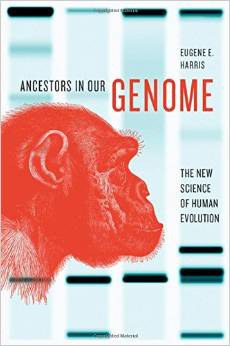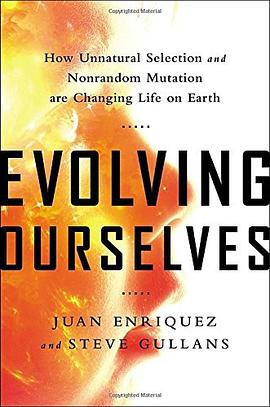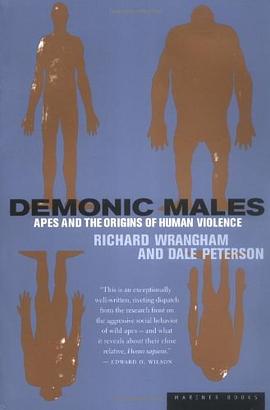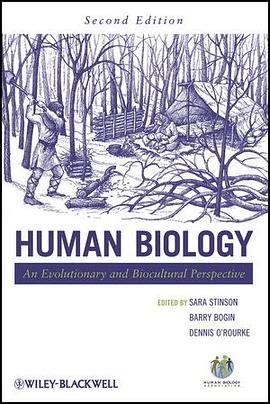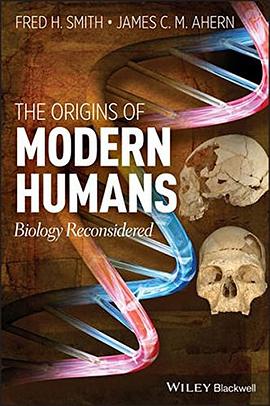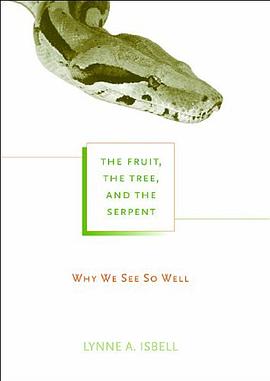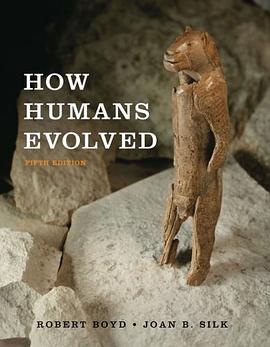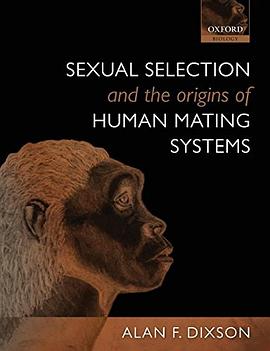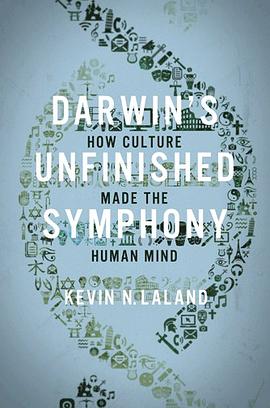

具体描述
Humans possess an extraordinary capacity for cultural production, from the arts and language to science and technology. How did the human mind—and the uniquely human ability to devise and transmit culture—evolve from its roots in animal behavior? Darwin's Unfinished Symphony presents a captivating new theory of human cognitive evolution. This compelling and accessible book reveals how culture is not just the magnificent end product of an evolutionary process that produced a species unlike all others—it is also the key driving force behind that process.
Kevin Laland shows how the learned and socially transmitted activities of our ancestors shaped our intellects through accelerating cycles of evolutionary feedback. The truly unique characteristics of our species—such as our intelligence, language, teaching, and cooperation—are not adaptive responses to predators, disease, or other external conditions. Rather, humans are creatures of their own making. Drawing on his own groundbreaking research, and bringing it to life with vivid natural history, Laland explains how animals imitate, innovate, and have remarkable traditions of their own. He traces our rise from scavenger apes in prehistory to modern humans able to design iPhones, dance the tango, and send astronauts into space.
This book tells the story of the painstaking fieldwork, the key experiments, the false leads, and the stunning scientific breakthroughs that led to this new understanding of how culture transformed human evolution. It is the story of how Darwin's intellectual descendants picked up where he left off and took up the challenge of providing a scientific account of the evolution of the human mind.
作者简介
Kevin N. Laland is professor of behavioral and evolutionary biology at the University of St Andrews. His books include Social Learning: An Introduction to Mechanisms, Methods, and Models and Niche Construction: The Neglected Process in Evolution (both Princeton).
目录信息
Part I: Foundations of Culture
1 Darwin’s Unfinished Symphony 1
2 Ubiquitous Copying 31
3 Why Copy? 50
4 A Tale of Two Fishes 77
5 The Roots of Creativity 99
Part II: The Evolution of the Mind
6 The Evolution of Intelligence 123
7 High Fidelity 150
8 Why We Alone Have Language 175
9 Gene-Culture Coevolution 208
10 The Dawn of Civilization 234
11 Foundations of Cooperation 264
12 The Arts 283
Epilogue: Awe Without Wonder 315
Notes 323
References 385
Index 443
· · · · · · (收起)
读后感
文/曾彧 简而言之,《未完成的进化》这本书深入探求和讲析了这样一个问题:为什么人类是世界的主宰。 对于现实生活中的人们来说,忙碌的工作及繁密生活事件对他们的要求使得他们无暇去思考诸如本书主题这一类的宏观问题,或者即使得闲偶尔进行这样的思索,我们不禁也会产生一个...
评分我们是从哪儿来的? 这里有一件非常有意思的事情,为什么我们要这么问?问出这个问题,本身就说明了这个问题的一部分,我们不一样。不自大的说,我们统治了这个地球,我们拥有宽阔的食谱,发达的科学技术,丰富的人文艺术,不止一种复杂的语言,我们做到了其他生物都没有做到的...
评分还记得美国的科幻电影《人猿星球》吗?在那部电影中,人类成了一群没有语言能力只能靠采集为生的非智慧生物,而人猿则是这个星球的高级智慧生命,主宰并掌握着这个星球的命脉。这幸好只是科幻电影,否则我还真的是难以想象这一幕在地球上上演会是怎样的一番景象。一只只大猩猩...
评分我们是从哪儿来的? 这里有一件非常有意思的事情,为什么我们要这么问?问出这个问题,本身就说明了这个问题的一部分,我们不一样。不自大的说,我们统治了这个地球,我们拥有宽阔的食谱,发达的科学技术,丰富的人文艺术,不止一种复杂的语言,我们做到了其他生物都没有做到的...
用户评价
总而言之,这本书对我而言,不仅仅是一次阅读,更是一次心灵的洗礼。它让我看到了生命的神奇与伟大,也让我对人类的未来充满了希望。作者以其卓越的才华,将科学与艺术、理性与情感、知识与智慧完美地结合在一起,创造出了一部真正意义上的杰作。我将久久地回味书中的内容,并且会毫不犹豫地向任何渴望深入了解生命、探索世界的人推荐这本书。它是一场思想的盛宴,一次智慧的启迪,一部值得我们反复阅读、深思的作品。
评分这本书的书写风格,与其说是“写”,不如说是“雕刻”。每一个句子,每一个段落,都经过了反复的打磨和推敲。作者的语言极其精准,却又不失情感的温度。他能够在科学的严谨和文学的诗意之间找到一个绝佳的平衡点。我常常会因为某个词语的恰当使用,或者某个比喻的生动形象而停下来,细细品味。这种对文字的极致追求,使得阅读体验本身就成为一种享受。即使在描述那些最为抽象的科学概念时,作者也能够运用极具画面感的语言,将它们呈现在我的脑海中。这是一种真正的艺术,一种能够用文字的力量触动心灵的艺术。
评分这本书就像一位睿智的导师,它没有直接告诉我答案,而是通过循循善诱的方式,引导我去发现答案。作者在提出问题之后,会留出空间让读者去思考,去推演,去形成自己的见解。这种互动式的阅读体验,让我感觉自己不仅仅是一个被动的接受者,更是一个积极的参与者。我被鼓励去质疑,去探索,去挑战那些既有的观念。这种开放式的写作态度,使得这本书具有了极高的思想价值。它不仅仅是一本书,更是一个激发思考的平台,让我有机会与作者进行一场跨越时空的思想对话。
评分我非常欣赏作者在叙事方式上的独具匠心。他并没有采用线性叙述的传统手法,而是通过多角度、多层次的切换,构建了一个立体而丰富的叙事空间。时而引经据典,追溯历史的脉络;时而深入浅出,剖析复杂的科学概念;时而又抒发情怀,表达对生命的热爱。这种灵活多变的叙事风格,让我始终保持着高度的阅读兴趣,仿佛置身于一场精彩绝伦的辩论,又如同聆听一位智者娓娓道来。我尤其喜欢作者在关键时刻引入的那些生动的例子和故事,它们如同点睛之笔,让原本抽象的理论立刻变得鲜活起来,也让我在潜移默化中,接受了那些新的思想。这本书带给我的,不仅仅是知识的增长,更是一种阅读的愉悦和智识的提升。
评分这本书不仅仅是对科学理论的探讨,更是一次对人类自身存在意义的追问。在阅读过程中,我不止一次地停下来,陷入沉思。达尔文的理论,如同一个种子,播撒在人类文明的土壤中,不断地生长,不断地演变,而这本书,则像是对这个种子所孕育出的复杂而美丽的花朵的一次全面审视。作者以一种充满人文关怀的视角,审视着生命演进过程中所产生的种种伦理、哲学以及社会问题。他没有回避那些令人不安的方面,反而直面它们,并试图找到一种能够让我们与自然和谐共处的方式。我被这种深度所折服,也为作者的勇气而感动。他所提出的观点,既有颠覆性,又充满了建设性,引发了我对许多固有观念的质疑,也让我对未来充满了更多的可能性。
评分初读之下,我便被作者构建的世界深深吸引。他以一种极其细腻的笔触,描绘了生命演进的宏伟画卷,仿佛将我置身于那遥远的过去,亲眼见证着无数生命形态的诞生与消亡。那些关于适应、关于选择、关于 DNA 传递的描述,不再是枯燥的科学名词,而是充满了生命力的诗歌。我能感受到作者在字里行间流露出的对生命本身的敬畏,以及对每一个细微之处的深刻洞察。他并没有简单地罗列事实,而是通过巧妙的叙事,将科学原理融入到引人入胜的故事中,让我仿佛化身为一名探险家,在知识的海洋中遨游,每一次的发现都伴随着巨大的惊喜。这本书的魅力在于,它能够让一个对科学并非专业的人,也能够领略到生命演进的壮丽,并且从中获得深刻的哲学思考。这种将艰深理论转化为易于理解和感悟的艺术,无疑是作者卓越才能的体现。
评分这本书给我最大的感受是,它极大地拓展了我对世界的认知边界。在阅读之前,我可能对生命演进的认识,停留在一些基础的科学常识层面。然而,通过这本书,我看到了一个更为广阔、更为复杂、也更为迷人的生命图景。作者所揭示的那些隐藏在生命现象背后的深层规律,让我惊叹不已。他不仅解释了“是什么”,更进一步探讨了“为什么”,并且引导我去思考“将如何”。这种由表及里、由浅入深的探讨方式,让我对生命本身产生了全新的敬畏之情。我开始更加关注身边的生物,更加思考人类在自然界中的位置。
评分这本书的封面设计本身就充满了艺术感,深邃的蓝色背景,点缀着抽象的音符和细胞结构,隐约透露出一种跨越生命与音乐的宏大叙事。在拿到这本书之前,我脑海中已经勾勒出无数种可能性,关于达尔文的名字,关于“未完成的交响曲”,这些词汇组合在一起,就像一个古老而神秘的预言,让我充满了探索的欲望。翻开扉页,一股淡淡的书香扑鼻而来,那是一种纸张与墨水混合的独特气息,瞬间将我带入了一个沉思的氛围。作者的文字功底毋庸置疑,即使在尚未深入阅读内容的情况下,仅仅是遣词造句的精妙,就足以让人感受到一种力量,一种能够引导读者穿越时空的智慧之光。我尤其期待作者如何将科学的严谨与艺术的灵动融为一体,如何在一个看似遥远的领域中,找到那些能够触动我们内心最柔软处的情感共鸣。这本书不仅仅是文字的堆砌,更像是一扇通往未知世界的门,而我,已经迫不及待地想要推开它,去感受里面蕴藏的震撼与启迪。
评分随着阅读的深入,我越来越感受到这本书的“未完成”之意,并非指内容上的不足,而是指它所引发的思考是永无止境的。它像是一面镜子,映照出我们对生命的理解,也激发我们对未知世界的无限探索。作者在书中反复强调的“进化”这一概念,早已超出了生物学的范畴,它渗透到我们生活的方方面面,从个体成长到社会进步,再到宇宙的演变。这本书让我意识到,我们每个人都是这场宏大交响曲中的一个音符,共同谱写着生命的乐章。我开始审视自己的生活方式,思考我在这个不断演变的世界中所扮演的角色,以及我应该如何做出更有意义的选择。这本书给予我的,是一种长远的启迪,一种让我愿意持续思考和探索的动力。
评分我得说,这本书的结构设计堪称完美。作者似乎对如何引导读者的思维有着极其深刻的理解。他循序渐进,从基础概念入手,逐步深入到更复杂的理论和哲学探讨。每一次的章节过渡都显得那么自然而流畅,仿佛是在引领我一步步攀登智慧的高峰。我尤其欣赏他在引入新观点时所做的铺垫,那些看似不经意的细节,却在后续的章节中发挥了至关重要的作用。这种严谨的逻辑和精巧的结构,让整个阅读过程充满了条理性和连贯性,让我能够清晰地把握作者的思想脉络,并且能够深入地理解他的论点。读完一章,总能引发我强烈的期待,想要知道下一章会带来怎样的惊喜。
评分 评分 评分 评分 评分相关图书
本站所有内容均为互联网搜索引擎提供的公开搜索信息,本站不存储任何数据与内容,任何内容与数据均与本站无关,如有需要请联系相关搜索引擎包括但不限于百度,google,bing,sogou 等
© 2026 book.quotespace.org All Rights Reserved. 小美书屋 版权所有


